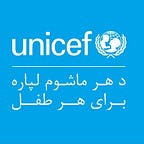In Afghanistan, eradicating polio and leading a quiet social revolution
Female social mobilizers are transforming the lives of children and women
By Dorn Townsend
KABUL, January 22, 2017 — Afghanistan’s female polio vaccination social mobilizers are in a unique position. As more women than ever are working to eradicate one of the world’s oldest diseases, they are all the while peacefully and unintentionally leading a social revolution that is chipping away at taboos against women who work.
This evolution of the role of women in urban Afghan society has been almost accidental because the rationale is so practical.
In a country where interaction between men and women is restricted, female health workers who approach stay-at-home-mothers are likely to be more successful.
They also take on the job for a variety of reasons, from wanting to help children, to earning a regular salary, to a desire to carve out a larger public role for women.
They are helping the worldwide polio programme overcome its last significant hurdle: eradicating the disease in Afghanistan.
“Everyone tells me this work is important for the children and Afghanistan. But many don’t know how important it is for women too.” — Leila, polio social mobilizer, Jalalabad
Along with Pakistan and Nigeria, Afghanistan is one of the three remaining countries where polio is endemic. In 2016, the country recorded only 13 cases. Globally, the number of polio cases was only 37, the lowest number in history.
Women leading the way
“If I am at home alone with my children and two men knock at my door, I cannot open. I would be censured by my community,” says Leila Farhang*, a new social mobilizer in Jalalabad, a major city close to the border with Pakistan in eastern Afghanistan.
“But women are allowed into Afghan homes,” she explains. “Other women who are at home will open the door to me so I can vaccinate children we might otherwise miss. This is the best part of my job. I help children and I can speak to other women.”
© UNICEF Afghanistan/2016/Hayeri
Since 2014, when UNICEF began emphasizing the hiring of women for the polio programme, the number of social mobilizers — Afghan staff who go door-to-door to educate families about the dangers of polio — has increased from about 12 per cent of the workforce to nearly 30 per cent in 2017. The goal is for this cadre to be 80 per cent female.
“You can almost say it’s become ‘normal’ to see women going door-to-door in Kandahar during polio campaigns. Few people ask what we are doing anymore,” said Hosna Reza*, a newly recruited social mobilizers. “I tell families about polio and I feel they respect my advice.”
Hiring women to work with children would not be news in most parts of the world. But in Afghanistan, where customs have long excluded women from the public workforce, it is a meaningful development.
Altogether UNICEF now supports nearly 1,500 women as frontline polio health workers in Afghanistan. This is double the estimate of the percentage of women participating in the broader Afghan labour force, according to the International Labour Organization (ILO).
Breaking down barriers
These modest gains for women have not come without tensions.
Nearly all female social mobilizers are employed in cities because the practice isn’t tolerated in rural communities. Yet even in urban areas, they sometimes face rigid opposition.
In Kandahar, for example, some female social mobilizers have faced threats from men who complain they are taking away their jobs. These threats have caused some to quit, like following the December 2016 vaccination campaign when 16 of them resigned citing intimidation and threats.
Yet, as more women have been hired as social mobilizers their roles have changed, too.
Several years ago these workers focused mainly on supplementing door-to-door vaccinations by handing out pamphlets and answering questions about polio.
Today, women are vaccinating the children directly and the results are clear: Expanding their role is transforming the effort to eradicate polio.
A clear impact
In urban areas, the number of so-called ‘missed children’ — infants under the age of five who eluded vaccination campaigns during the first round — has declined sharply. This is important because eradication can only occur when ‘group immunity’ is achieved by vaccinating nearly every child in a community.
In Jalalabad, where nearly all the social mobilizers are women, the rate of recovery of ‘missed children’ was 93 per cent during the last vaccination campaign in December 2016.
Compare that to Kunar, a province adjacent to Jalalabad with a more rural and traditional population whose cadre of social mobilizers are nearly all men, where the rate of recovery was only about 50 per cent.
“I studied medicine in university and always wanted to work to improve the health of children, but there were few opportunities to work in the east of Afghanistan,” says Leila Farhang. “Everyone tells me this work is important for the children and Afghanistan. But many don’t know how important it is for women too.”
*Name changed to protect identity
Thank you to donors who support our work to eradicate polio in Afghanistan, including Rotary International, the Bill and Melinda Gates Foundation, and the Governments of Canada, Germany, and Japan, among others.
